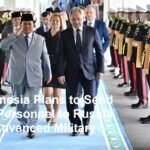The Serbian Parliament witnessed a scene of unprecedented chaos on Tuesday, March 4th, 2025, during its spring session. Reports detail a disruption of parliamentary proceedings marked by the ignition of flares and the deployment of tear gas by members of the opposition. This dramatic display of political dissent, while arguably shocking, is symptomatic of deeper tensions simmering within Serbian society and its political landscape. Understanding the root causes of this incident necessitates a careful examination of the prevailing political climate, the specific grievances of the opposition, and the broader socio-economic context in which Serbian politics operates.
One of the primary factors contributing to the unrest is the persistent accusation of authoritarian tendencies leveled against the ruling party. Since their ascent to power, the ruling coalition has faced allegations of consolidating power, eroding democratic institutions, and stifling dissent. Critics point to their control over media outlets, their influence on judicial appointments, and their alleged manipulation of electoral processes as evidence of a systematic effort to undermine the checks and balances essential for a functioning democracy. This perceived erosion of democratic principles has fueled resentment among opposition parties, who view the disruption as a necessary, albeit extreme, measure to draw attention to what they believe is a slide towards autocracy.
Furthermore, the specific policy agenda of the ruling party and its perceived impact on the Serbian economy and society have become significant points of contention. The opposition has consistently criticized the government’s economic policies, particularly regarding privatization, foreign investment, and social welfare programs. They argue that these policies disproportionately benefit a select few, exacerbating income inequality and leaving marginalized communities behind. These grievances are often amplified by public sentiment, particularly among those who feel economically disenfranchised. The perceived lack of transparency and accountability in government decision-making further fuels distrust and breeds suspicion, creating a fertile ground for political unrest.
Beyond economic concerns, issues of national identity and geopolitical alignment also play a crucial role in shaping the political climate in Serbia. The legacy of the Balkan wars continues to cast a long shadow, and questions of national identity, territorial integrity, and relations with neighboring countries remain highly sensitive. The ruling party’s stance on these issues, often perceived by the opposition as either overly nationalistic or insufficiently protective of Serbian interests, provides another avenue for criticism and mobilization. The ongoing negotiations with Kosovo, for instance, have proven to be particularly divisive, with some opposition factions accusing the government of compromising national sovereignty.
The volatile geopolitical landscape surrounding Serbia further complicates the situation. Serbia’s delicate balancing act between its aspirations for European Union membership and its historical ties to Russia has become increasingly difficult to navigate. The opposition often accuses the ruling party of aligning itself too closely with one side or the other, potentially jeopardizing Serbia’s long-term strategic interests. This geopolitical dimension adds another layer of complexity to the domestic political scene, as different political factions vie for influence and advocate for different foreign policy orientations.
In analyzing the events of March 4th, it’s crucial to acknowledge the role of parliamentary procedure and the dynamics of political discourse within the Serbian Parliament itself. Accusations of procedural irregularities, biased rulings by the Speaker of the Parliament, and the suppression of opposition voices have become commonplace. The opposition often feels that their concerns are systematically ignored and that they are denied a fair opportunity to participate in meaningful political debate. This perceived marginalization can lead to frustration and a sense of desperation, potentially contributing to more radical forms of protest.
Finally, it’s important to consider the potential influence of external actors on the Serbian political scene. Allegations of foreign interference in Serbian elections and political processes have been circulating for years, and while concrete evidence is often lacking, these accusations contribute to a climate of suspicion and mistrust. The perception that foreign powers are seeking to influence Serbian politics, either to promote their own interests or to destabilize the country, can further exacerbate existing tensions and fuel political polarization.
In conclusion, the disturbances that occurred in the Serbian Parliament on March 4th, 2025, represent a culmination of various factors, including accusations of authoritarianism, discontent with economic policies, unresolved issues of national identity, geopolitical pressures, and perceived procedural injustices within the parliament itself. While the opposition’s actions may be viewed by some as a violation of democratic norms, they are undoubtedly a reflection of deep-seated grievances and a growing sense of political alienation. Addressing these underlying issues requires a concerted effort from all political actors in Serbia, including the ruling party, the opposition, and civil society organizations. A commitment to open dialogue, institutional reform, and a more inclusive and equitable political process is essential for restoring stability and preserving the integrity of Serbian democracy. Furthermore, a more nuanced and less confrontational approach to navigating the complexities of the geopolitical landscape is crucial for ensuring Serbia’s long-term security and prosperity. Only through such a comprehensive approach can Serbia hope to overcome the challenges it faces and build a more stable and prosperous future.












